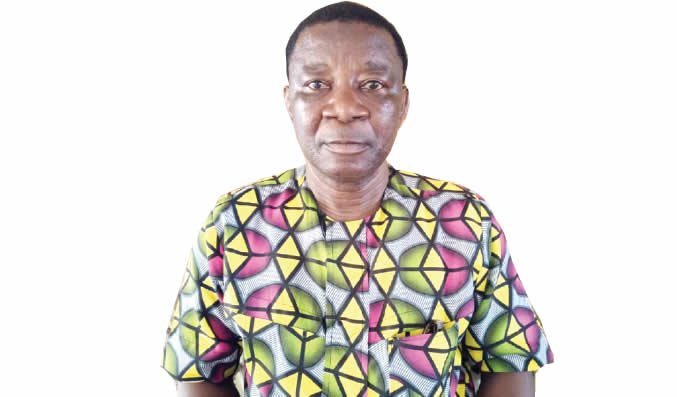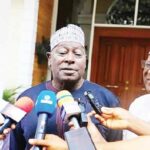
The Chairman, Nigeria Union of Pensioners, Anambra State chapter, and former state Chairman of the Nigeria Labour Congress, Dr Anthony Chukwuemeka, talks to IKENNA OBIANERI about the plight of workers and pensioners in the country
Who is Dr Anthony Chukwuemeka?
I am currently the Anambra State Chairman of the Nigeria Union of Pensioners. I was the state chairman of the Nigeria Union of Teachers. I was also the state chairman of the Nigeria Labour Congress and when I retired, I was elected as the chairman of NUP. I was the regional chairman of the NUT in the old Anambra State and the old Eastern Region that included Rivers and Bayelsa states. At that time, it was called the East Regional Working Committee. When the Osun State chapter had a crisis, I was drafted in.
When was this?
That was in 2008 and since then there has not been any problem with that state’s NLC. No conflict anymore. I served as the caretaker committee chairman for a year and three months. I was sent there to organise them and I inaugurated the elders’ committee.
When did you retire from active service?
I retired as a teacher in 2011. I started attending the meeting of pensioners and when they saw my pedigree and what I can offer, they decided to push me in as the chairman. I became the chairman in 2016. The former chairman and the secretary died mysteriously in the same month. At first, I suffered some terrible challenges, I had to visit some states to gather experience on how to run the affairs of pensioners, and eventually, God gave us wisdom.
Since you became the chairman of the pensioners’ union in the state, what are the challenges you have faced as a body and how have the challenges been surmounted?
There are so many challenges. First, our operational base is a rented place and we have been paying rent for a long time, but during my stewardship, the union acquired a parcel of land of about four hectares within Awka. We have designed the outlook of the secretariat. We also had serious challenges regarding unpaid gratuities and the problem started with the immediate past administration of Willie Obiano. When he began to owe gratuities, we wrote to him. We attempted to reach him, but it was not easy to reach him as he continued to owe gratuities of local government and state pensioners for up to five years when he left.
Although the administration of a former governor, Peter Obi, also met arrears of about 16 months, which were carried over from the administration of another former governor, Chinwoke Mbadinuju, and by the time Peter Obi was leaving, he had cleared some of them, remaining only 11 months and he told Obiano to continue from where he stopped and the Joint Action Committee was advised to take action on it. But there were rumours that the JAC received the money, but did not pay the beneficiaries. Local government pensioners are owed gratuities by the state government.
The administration of Obiano owed us arrears and left, but we met the current governor, Prof Chukwuma Soludo, concerning the problems of all the pensioners in the state, and the matter is now before the House of Assembly. We have met the lawmakers twice and they have also invited the ministry concerned, but officials of the ministry have refused to honour the invitation. Since they have failed to come on two occasions they were invited, the House committee has written again, warning that if they fail to come at the next meeting, it will use every power available to it to address the issue.
Why do you think the ministry failed to honour the invitation?
Well, they have their reason. I will not give a reason. It is for them to state their reasons for not coming. The impressive part of it is that the governor said that under his watch, he would not owe any pensioner. On the issue of gratuities owed by the former administrations, he has decided to keep money aside every month and when it reaches N300m, he will divide and share it among those who are owed. He will use N150m to pay the state pensioners and the other N150m for the local government pensioners, and he has started doing it. It is a way of gradually liquidating the arrears and it is very impressive.
At what level has the matter reached at the state Assembly?
We petitioned the Assembly and they invited us and we gave them some documents. It is the ministry of local government and chieftaincy titles, which supervises the JAC that has been invited. Although it is not the problem of the present crop of officers at the ministry, since the government is a continuum, they have to be invited. The most important thing is for the money to be paid to the beneficiaries.
How will you assess the contributory pension scheme during your active years in service and now?
This contributory pension scheme has not taken effect in Anambra State. It was canvassed in those days when I was the chairman of the NLC, but it has not taken effect. So, there is a need for state legislation to make it a law. The full benefit of pension is what we are still observing in Anambra and some parts of the South-East.
Do you mean Anambra and parts of the South-East have not embraced the contributory pension scheme, which started in 2004?
You know that the contributory pension scheme is discouraging, because no one trusts the government. How are you sure that the government will make the money available when you need it? Federal workers, who have been co-opted into the scheme, are also finding it difficult to assess their pensions. I think a lot of work and measures still need to be put in place for more effectiveness. Assessing pension at that level is also quite challenging. There are a lot of bottlenecks, which still need to be corrected both by the National Pension Commission and the service providers.
As the head of pensioners in Anambra, is there collaboration with other states, especially in the South-East?
Among the South-East states, Anambra is the best in terms of pension matters and we are in collaboration with every pensioner across the state. We are in unionism and we fight our cause as a united body.
Talking about retirement, how is life as a retiree and since you retired from service, what are your regrets?
It is not easy. Four days ago, I could not stand erect; I have arthritis, so it is unfortunate. This is what inactivity is causing. Old age and retirement are quite challenging and the fact that some of the problems you could not address while active are still cropping up is another regrettable aspect. There were some problems one should have resolved while in active service but couldn’t, and now, they are cropping up. But all the same, I am fortunate that I have good health and I am not a tenant. I have some tenants in my house but whenever I request my rent, they complain that the economy is bad. Some even think I don’t need the rent; they forget that I am now a pensioner.
It is not so easy for pensioners in Nigeria. In advanced countries, there are activities provided for pensioners to engage themselves in, which have far-reaching impact on them, but here (in Nigeria), such things are not available and that is why when one stays inactive for too long, it may lead to depression, loss of memory and some other illnesses; these challenges are instantly noticeable and they are faced by those who were not prepared for retirement or those who were caught unawares.
What should young workers do to avoid regrets in retirement?
My advice to them is to note that anything that has a beginning must have an end. If you enter a job today, you should begin to think about when the job will end. If you have to save a little money, save it. When I started working, I used to give a certain amount every month to my late father to help in moulding blocks for me and I used the blocks to build my house. I started saving from the month I started working and the money I got from the savings helped me in building my house. However, the design I had when I started was not the design I later used for the building. I had to abandon the former design because it was outdated. It took me years to start building the house and you know that there will be changes in taste and fashion as a result. My advice for those working now is that they should have savings. There will be a time that the job will be no more and whatever you depend on will be what you have saved.
Young workers should shun extravagant lifestyles and always strive to improve their capacities to earn better income, because the present day is not like what we had in those days when people graduated from school and were offered jobs, a house and a car. Today, graduates have to look for ways to be self-employed. So, those in active service should always improve their capacities to be more marketable, so that even when they leave active service, their services will still be needed. Those who are nearing their retirement should be prepared and ensure all the necessary documentation for their pension is intact and ready.
There have been reports of pensioners dying or collapsing while waiting for their entitlements. How do you feel about this and what is the way out?
That is a very embarrassing situation because those people are old and are not active anymore. And when you call them out, either for verification or payment, this is when that kind of problem starts. But with the introduction of technology, most of these problems have been solved. Unless in a state where the old system of coming out to queue for verification or payment is still in practice.
Do you think pensioners are well-cared for in Nigeria?
Pensioners, especially those from the public sector, are treated shabbily after serving their country and it is very unfortunate. In other countries, retirees are given befitting retirement plans and this makes them never regret serving their nations. But here, the reverse is the case; our counterparts from the military or paramilitary sector are the worst. We see some retirees, who served this country, roaming the streets; it is unfortunate. Governments at all levels don’t have concrete plans for retirees and that is why when people see an opportunity to embezzle money, they don’t think twice, but if there are better retirement packages than what is presently available, the spirit to embezzle public funds will not be rampant.
The NLC last week held a solidarity protest to call on the Federal Government to meet the demands of the Academic Staff Union of Universities. Is strike action the best way to resolve industrial disputes?
Strike action is the last resort any union will take to attract the attention of the concerned authorities to their demands. When I was the chairman of the NLC in Anambra State, Peter Obi was the governor. We wrote letters to him about eight times on matters that had to do with the promotion of teachers and benefits and allowances payable to some directors; we articulated all the demands and allowances in lieu of the availability of accommodation, but he did not respond or reply. Then we decided to go on strike, not because he owed us.
But we needed the government to take action on our demands. And then, we processed the strike discreetly; we went to Abuja to get the letter signed by the Ministry of Labour at that time. When we came back to Anambra, a few minutes to 4pm when workers were about to close for the day, we sent the letter to the Anambra State Ministry of Information informing them that the strike would begin the following day. So, as soon as it was 4pm, every worker had closed for the day. I had also closed from work and gone home; the plan was that since we had notified the government, every head of department was expected to inform their members that the strike would commence the following day. That was the period I had the greatest temptation. When the ministry received the letter, it contacted the governor. I was in my house around 5pm on that day when I saw two Hilux vans parked in front. I knew they were from the government because they were government-branded vehicles.
Did they come to arrest you?
I cannot say if it was to arrest me or not, but I knew they wanted to force me back to the secretariat to announce the suspension of the strike. They searched for me and when they did not find me, they proceeded to the next compound to ask my neighbours about my whereabouts. I used to live on St. John’s Avenue, GRA, but the people there told them that I had not returned from work. So, they waited for me till 9pm, expecting me to come back, but they never knew I was already inside watching them.
Were they in uniform?
I did not see anyone in uniform, but I knew the reason they came and the whole neighbourhood became worried about me. They were desperately looking for me to forcefully get me back to the secretariat to cancel the strike by all means before its commencement the following day, but they did not get me.
What happened next?
The following day, the strike started. All activities were paralysed. We marched through the communities of Awka, Ekwulobia, Onitsha and Nnewi, and the strike did not last up to a week before all our demands were met. These were demands that made us write a series of letters without any attention and it took us months. The union insisted that every person on the payroll of the government must down tools.
That was why Peter Obi went to his wife’s town in Cross River State and brought someone called Socrates, who was driving him for the duration of the strike, because his personal driver did not go to work. We paralysed the activities of the government and after the issues were resolved, Peter Obi called me and said, ‘Chairman, you are tough o’. In reply, I said, ‘Your Excellency, I am not tough, it is the system that is tough’. And we became very good friends after that. The only thing is that he did not give me the appointment he promised to give me and I am sure it was because of our action. So, industrial action is the last resort and the only weapon used to face the government; it is the only language the government understands.
The current ASUU strike has lingered for too long and Nigerians, especially students, are worried. What is your take on it?
Remember that the government reached an agreement with ASUU. Why has it failed to fulfil its part of the agreement? If it (strike) is the last thing that will get the government to respond to their demands, it is in order.
Some Nigerians blame the Minister of Labour and Employment, Dr Chris Ngige, for the level the industrial dispute has degenerated to. What do you think is the role of the minister in the dispute?
The ministry only plays the role of an intermediary in this situation. The buck stops with the President. It is the decision of the President to take. The minister does not have substantive power, and it is very unfortunate that they have allowed the situation to degenerate too far and the people, including students and parents, are suffering.
As the general elections draw nearer, what is your message to Nigerian pensioners?
I will advise them to get their PVC in case elections are held and they should advise their children not to make themselves available for politicians to misuse. There is danger everywhere. The government can no longer provide security for the people. I advise them to pray, be more careful and avoid movements at night. What we are facing today is not a punishment from God. It is bad leadership.








